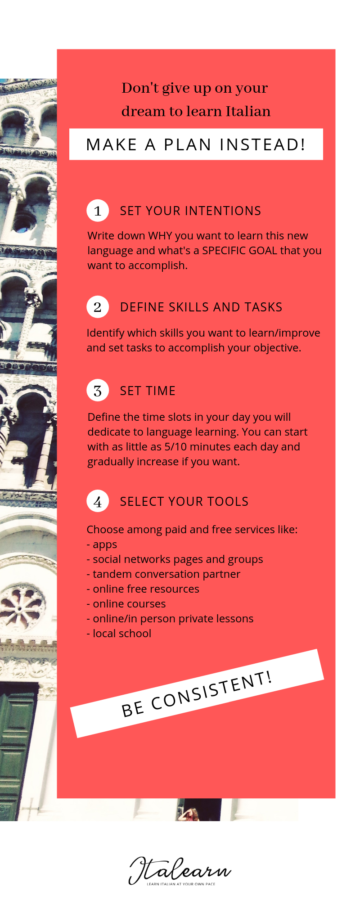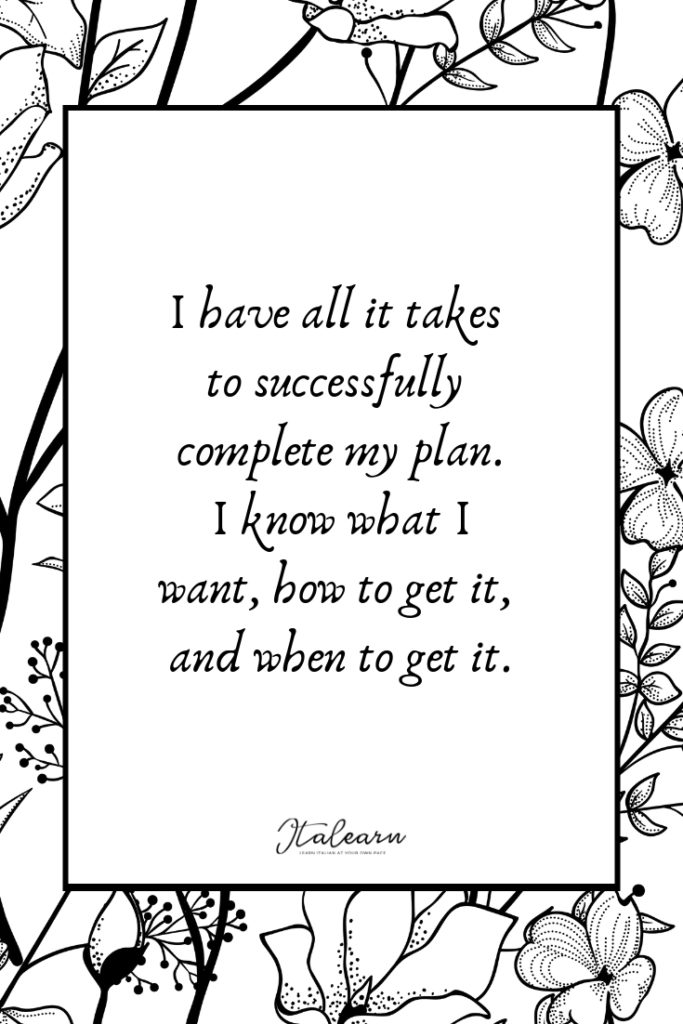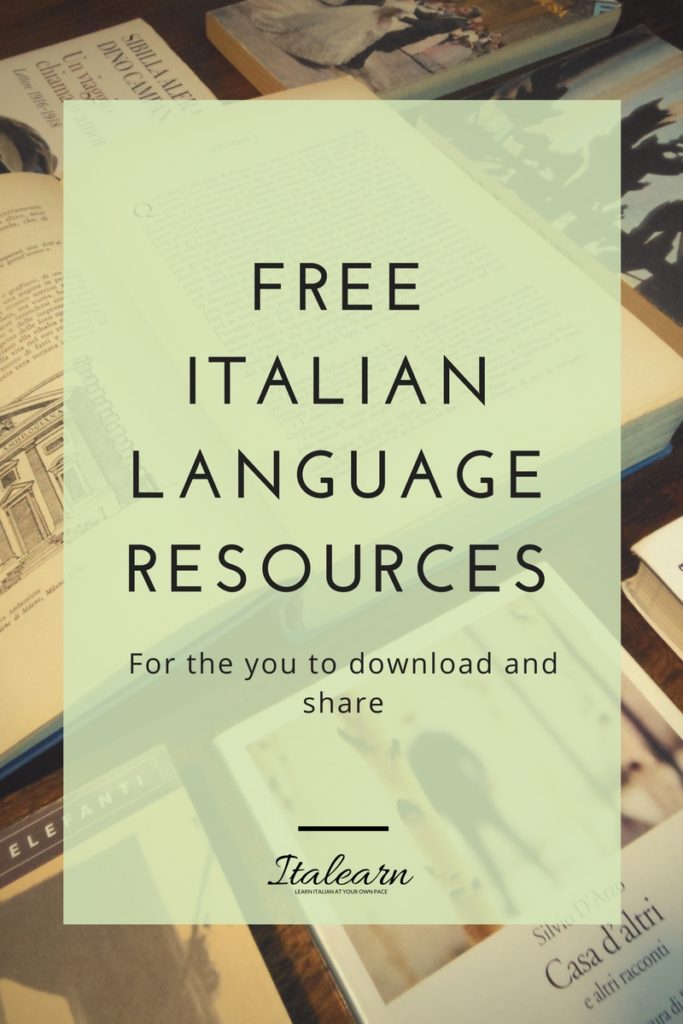This is not my usual blog post, it’s an action plan. Totally doable, so before even reading, download this PDF.
Why an action plan? Because we procrastinate, of course!
So this time you have no excuses, I have outlined your action plan and you only need to fill it in with your personal goals.
While you think about it, I’ll tell you what’s in this 4-steps plan, go get your notebook.
STEP 1
Learning Italian is your secret dream, and you have been telling yourself that it will remain just a dream because reality checks in:
- we don’t have time,
- we’re not good at languages,
- we can’t invest too much money right now, etc.
Is it 100% true, or is there something, although very small, that we can do even if we don’t have time and money? One-word answer: yes. Go on reading for a more detailed answer.
This is your first step: choose where you want to go.
You need to be clear on what you want to do with the language, if you can connect learning Italian to a specific result you want to achieve then it’s going to be easier to stay motivated.
Your action in this first phase is to set your intentions:
- Write down WHY you want to learn this new language and what’s a SPECIFIC GOAL that you want to accomplish (you can update your goals as you go), for example attending a 1-month cooking retreat in Italy next year.
STEP 2
Ok, but how do I start from? It’s a legitimate question. There is plenty of opinions out there: bloggers advice, influencers top choices, polyglots methods, the fluency myth. It’s difficult to find what works for us, so put your headphones on and don’t listen to anyone else but you now.
This is your second step: define “Skills and tasks”.
What are skills in this context? Skills are the abilities you want to obtain, those that will allow you to actually speak the language. And what are tasks in this context? Tasks are all the actions you will need in order to obtain your skills.
Try to define which skills you want to learn/improve and set tasks to accomplish your objective.
Create macro-categories you want to work on and set the tasks for each of them.
Let’s say for example that your three main categories to work on are vocabulary, listening/conversation, and writing. And let’s use the same example we used for step number 1, attending a 1-month cooking retreat in Italy next year. You can go ahead like this:
– Vocabulary
You want to learn everything that might be useful to communicate in class so your task is to: create verbs conjugation cards (hand-written cards, on paper).
Make glossaries about specific cooking terminology (handwritten on paper or printed out, but well organized so that you always find the information you need)
– Listening/conversation
You want to be able to understand the chef instructions so your task is to: learn how to ask specific questions (for example how to combine/prep/cook local food)
– Writing
Your ultimate goal is to be able to write your own recipes in Italian so your task will be to take notes in class (in Italian, so part of the work is done already).
STEP 3
Now that you know what to do, you have to find the time to actually do! How do you block some time during the week to practice Italian?
This is your third step: set time.
Define the time slots in your day you will dedicate to language learning. You can start with as little as 5/10 minutes each day and gradually increase if you want.
How about 15 minutes of your lunch break from Monday to Friday, or 30 minutes before going to bed, or every day while commuting to work (so this will depend on how long your train ride is, but in your plan write down the exact amount of time you will commit to learning), etc.
STEP 4
It’s ok to learn on your own, but you don’t want to do it alone, so the last action you will list in your plan is to find your accountability person. Different things work for different people so here I can only give you some inspiration, you know what does the trick for you.
This is your fourth step: select your tools
Choose among paid and free services like:
– apps
– social networks pages and groups
– tandem conversation partner
– online free resources
– online courses
– online/in person private lessons
– local school
Your action plan is complete, congratulations!
Be consistent with it, don’t give up after a couple of weeks because “it doesn’t work”, “I don’t see progress”, or any other excuse you come up with. Learning a language doesn’t happen quickly and doesn’t use any shortcut.
There is also a fifth step that I didn’t mention before, you don’t necessarily have to include it in your action plan, but if you write it down and keep it somewhere very visible, I’m sure it’ll pay off in the long run: ditch the “I’m not good enough” mindset.
Write this on your reminder: I have all it takes to successfully complete my plan, I know what I want, how to get it, and when to get it.


Get better at Italian through creative exercises. Sign up for the free mini-course A story and 5 creative ways to fall in love with Italian and I'll send you the story straight away.
PS: no artistic skills required!
Thank you!
Check your inbox! You have just received an email from me so you can confirm that you really, really want to receive the free guide and updates from me.
Silvia





